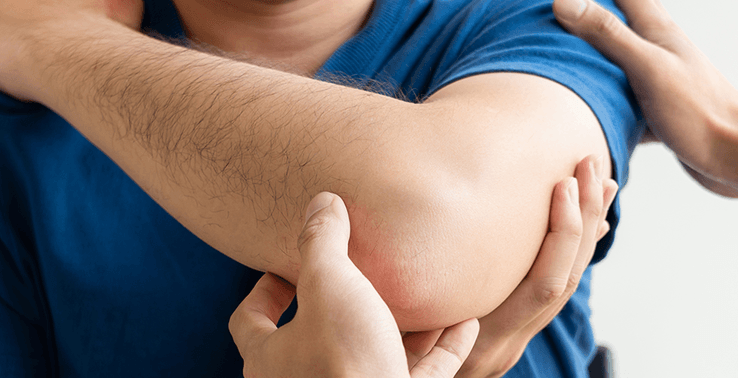Types of Shoulder Dislocation and How They Are Treated

Dr Alan Cheung
Senior Consultant Orthopaedic Surgeon in Singapore
MBBS (London), MRCS (England), FRCS (Trauma and Orthopaedics, England), Diploma in Sport and Exercise Medicine (UK), Fellow of the European Board of Orthopaedics and Traumatology, American Academy of Orthopaedic Surgeons (AAOS)

A dislocated shoulder is a common and painful injury that occurs when the ball of the upper arm bone (humerus) is forced out of the shallow socket (glenoid) in your shoulder blade. This injury can occur as a result of a sudden jolt or a powerful impact, such as those experienced during sports activities or vehicle accidents.
The shoulder joint is the most frequently dislocated joint in the body due to its high mobility and relatively weak stability. Dislocations can be partial, where the upper arm ball is partially out of the socket, or complete, where it is out of the socket.
What Are the Types of Shoulder Dislocation?
Shoulder dislocations can be categorised into three main types based on the direction in which the humerus bone moves out of place.
This is the most common type of shoulder dislocation. In an anterior dislocation, the humerus moves forward, away from the body. This usually occurs when the arm is held above the head, and a force pushes the arm backwards. Such injuries are common in sports like basketball and volleyball.
A posterior shoulder dislocation is less common. In this type, the humerus moves backwards into the shoulder blade. It is often caused by a direct blow to the front of the shoulder, a fall on an outstretched arm, or a violent muscle contraction. These contractions may occur during a seizure or electric shock.
Inferior shoulder dislocation is the rarest type. In this case, the humerus moves downward out of the joint. This injury typically happens when a person falls with their arm above their head, with the force pushing the arm upward. Despite its dramatic presentation, it is a relatively less damaging form of dislocation due to minimal contact between the dislocated humerus and the socket.
What Causes Shoulder Dislocation?
Shoulder dislocation can be caused by:
- Sports Injuries: Contact sports like football, rugby, or martial arts often involve falls or blows to the body that can lead to a dislocated shoulder.
- Falls: Falling on your shoulder or outstretching your arm during a fall can push the shoulder bone out of its socket.
- Seizures and Electric Shocks: Violent muscle contractions during a seizure or an electric shock can cause the shoulder to dislocate.
- Vehicle Accidents: A sudden, powerful impact from a motor vehicle accident can dislocate the shoulder.
What Are the Symptoms of a Dislocated Shoulder?
The symptoms of a dislocated shoulder include:
- Popping Sensation: You may feel or hear a pop at the time of injury
- Deformity: The shoulder may look out of place or visibly deformed
- Severe Pain: There is often intense pain in the upper arm and shoulder
- Swelling: The area around the shoulder may become swollen
- Numbness and Weakness: You might feel numbness and weakness in the arm
- Bruising: Bruises may appear due to broken blood vessels
- Limited Range of Motion: You will have difficulty moving your arm
What Are the Risk Factors of Shoulder Dislocation?
In addition to contact sports, these factors might increase one’s risk of shoulder dislocation:
- Repetitive Overhead Movement: This can stretch and weaken the shoulder joint, making it more susceptible to dislocation during forceful movements.
- Previous Dislocation: Patients who have had previous dislocations are more prone to future dislocations due to unstable shoulder joints.
- Genetics: Some people inherit looser connective tissues, which can make the shoulder joint less stable and more prone to subluxations (partial dislocations).
Complications of a Dislocated Shoulder
If not treated properly, a dislocated shoulder can lead to various complications, such as:
- Repeated Dislocations: Once the shoulder has been dislocated, it might become unstable and prone to repeat dislocations.
- Fractures or Tears: Bones and other tissues in the shoulder may be fractured or torn during a dislocation.
- Nerve or Blood Vessel Damage: These structures may also be injured when a dislocation occurs.
How Is a Dislocated Shoulder Diagnosed?
An orthopaedic doctor will diagnose a dislocated shoulder based on a physical examination and your medical history. They might move your arm in different directions to check for instability and pain. Imaging tests, such as X-rays, MRI, or CT scans, might also confirm the diagnosis and check for any associated injuries.
What Are the Treatment Options for a Dislocated Shoulder?
Each dislocated shoulder is unique, and treatment plans should be designed to address the specific cause and severity. Factors such as age, general health, activity level, and whether the dislocation is a first-time or recurring event all influence the treatment choice.
Closed Reduction is usually the first line of treatment for a dislocated shoulder. In a closed reduction, an orthopaedic specialist manipulates the shoulder to guide the arm bone back into the socket. Pain relief medications are often administered before this procedure to reduce discomfort.
A shoulder dislocation surgery might be necessary in cases where closed reduction is not successful or if there is significant damage to the surrounding tissues. It may also be advisable for individuals who experience frequent dislocations or those who lead an active lifestyle and desire to reduce the likelihood of future dislocations.
Arthroscopic surgery is a minimally invasive option that involves making small incisions around the shoulder and inserting a tiny camera (arthroscope) to guide the repair. It can be used to repair torn ligaments or tendons, remove loose fragments of bone or cartilage, or address other issues contributing to shoulder instability.
- Immobilisation: A sling or brace helps keep the shoulder joint stable and protected while it heals, reducing pain and preventing further injury.
- Ice Therapy: Applying ice packs to the shoulder can help reduce swelling and ease pain by minimising inflammation.
- Medication: Pain relievers and anti-inflammatory medications may be prescribed to help manage pain and reduce swelling.
- Rehabilitation: Physiotherapy exercises can help strengthen the shoulder muscles, improve range of motion, and prevent future dislocations.
What Is the Recovery Time for a Dislocated Shoulder?
Recovery time for a dislocated shoulder can vary widely depending on the severity of the dislocation, the patient's overall health, and how well they follow their treatment plan. Generally, the shoulder must be immobilised for a few weeks after the dislocation is corrected. After that, physiotherapy is usually necessary to restore strength and flexibility to the shoulder. Full recovery can take anywhere from a few weeks to several months.
When Should I See an Orthopaedic Specialist?
Seek immediate medical attention from an orthopaedic specialist if you suspect a shoulder dislocation. The International Orthopaedic Clinic can help you return to your active lifestyle. Our experienced orthopaedic surgeons can provide personalised and effective dislocated shoulder treatment in Singapore. Call us at 6253 7111 to schedule a consultation.
